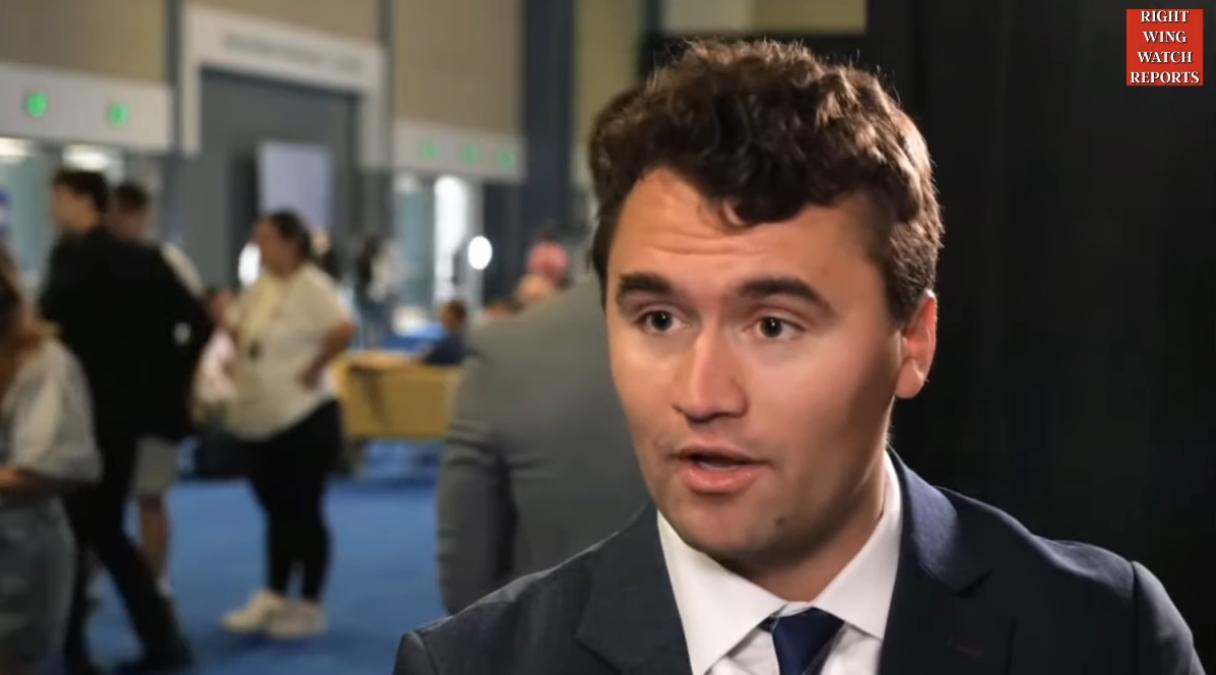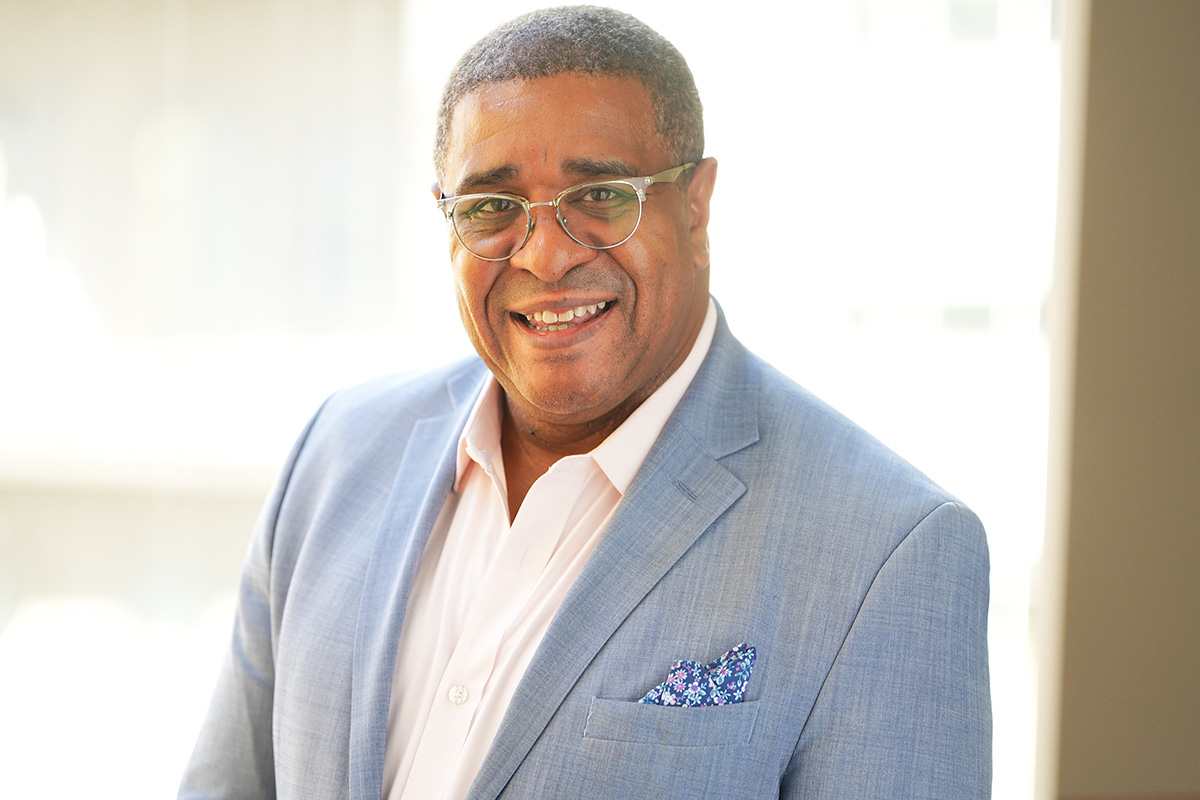Commentary
LA Dodgers legend Tommy Lasorda dies- left a messy legacy
He loved his gay son, was with him as he died of AIDS – but denied him immediately afterwards


Editor’s note: Former Los Angeles Blade News Editor Karen Ocamb reflects on the painful truth that is for too many in the LGBTQ+ community, especially those in their 40’s onward, a reality that they live. While some celebrity parents in this modern era enthusiastically embrace and affirm their queer children- that was hardly ever the case in years past to the point of erasure.
LOS ANGELES – LA Dodgers icon Tommy Lasorda has died at 93. He was a character worthy of his Hall of Fame status. But he also exemplified the horrendous personal struggle gays and their families faced during the AIDS crisis.
When his beloved gay son Tommy Jr. died on June 3, 1991, Lasorda publicly lied about Tommy being gay or dying of AIDS and asked that all charitable donations in Tommy Jr’s name go to the Association of Professional Ball Players of America.
I was FURIOUS! Tommy Jr. was a fashionista around WeHo. When I met him at a 12 Step meeting, he looked like Andy Warhol. His father may have loved Jr – but he repudiated him at death. I was so furious at this deliberate homophobic erasure – especially at a time when the announcement could have done so much good – I wrote a scathing opinion piece that was so controversial, it was even picked up by a gay porn magazine.
Years later, at some charity event, not in an interview, Lasorda admitted that Tommy Jr was gay and had died of AIDS – and he apologized for his homophobia. I remember struggling with forgiveness. It may have only come after I read Peter Richmond’s extraordinary article in GQ about the father-son relationship.
“He loved the Dodgers. He attended many games each season. His father regularly called him from the road. In his office at Dodger Stadium, the father kept a photograph of Tommy on his desk;” excerpt from The Brief Life And Complicated Death Of Tommy Lasorda’s Gay Son by Peter Richmond
The LA Times piece mentions the GQ story though most other Lasorda obits do not. I can’t find a story on the apology though I must have written about it somewhere.
This, too, must be part of the story – part of Tommy Lasorda’s legacy – that he loved his gay son, was with him as he died of AIDS – but denied him immediately afterwards – only to hurt so much from that denial that he finally apologized, perhaps following the lead of another sports great, HIV-positive Magic Johnson, who also has a gender-fluid son.
I’d say there’s something metaphorically biblical here – but it’s really only another story of our fragile humanity. RIP Tommy Lasorda – both Jr & Sr.
Commentary
PrEPARING California for the future and better supporting those living with HIV
AB 554 is a huge step in the right direction; however, without consistent leadership from policymakers, those living with HIV will continue to be the first on the budget chopping block.

When I learned I was living with HIV nine years ago, there were a lot of questions to be answered: how will I access treatment? Will I feel safe and respected by my care team? What does stigma look like for me in the fourth decade of the HIV epidemic?
While I was fortunate to have a wonderful team of case managers and health care providers who guided me through an unfamiliar and complex medical system, I’ve heard countless stories of people fighting tooth and nail just to find appropriate care, let alone treatment.
Our country’s labyrinthine, convoluted health system is cluttered with obstacles like prior authorization and step therapy. Both of which needlessly delay access to health care by imposing vague requirements and/or forcing patients to “fail” a series of medications before they are granted access to the one actually prescribed by their physician. For game-changing HIV prevention drugs like PrEP, these hurdles endanger lives. Combined with our current federal landscape being incredibly antagonistic (i.e., the Trump Administration trying to gut $1.5 billion in HIV prevention funding, among a laundry list of offenses), the LGBTQ+ community is facing disproportionate hardships that are exacerbating disparities and contributing to further stigmatization.
Thankfully, California policymakers are doing their part to protect our community. Assembly Bill 554, authored by Assemblymember Mark González (D-Los Angeles), follows in the footsteps of nine other states by ensuring coverage for all long-acting, injectable drugs used for PrEP and PEP. The bill “safeguards patient and provider choice” by eliminating cost-sharing and expanding access to a wider range of ARV medications to help bolster medication adherence rates. It also ensures coverage for future formulations of ARV drugs that are better at making HIV undetectable and untransmissible.
PrEP (pre-exposure prophylaxis) and PEP (post-exposure prophylaxis) are effective regimens for preventing the transmission of HIV when taken as prescribed. AB 554 enshrines quick access to these treatments, satisfying calls for health equity, especially for Black and Latino Californians, who face disproportionate transmission and infection rates.
AB 554 is a huge step in the right direction; however, without consistent leadership from policymakers, those living with HIV will continue to be the first on the budget chopping block. Just last week, the California Legislature passed a budget trailer bill (AB 144) that includes provisions to divert funds from the AIDS Drugs Assistance Program Rebate Fund toward general state operations.
California policymakers can’t say they’re countering the Trump Administration and supporting the HIV community if they’re also ripping the rug out from underneath us. AIDS Drug Assistance Programs are lifelines – they normalize diagnoses, fund direct services, and help uninsured and underinsured patients access essential care.
Ironically, while AB 554 will build upon the work of ADAPs to eliminate prohibitive barriers, AB 144 will steal funds from the program to instead boost state revenue. ADAPs already operate from a very small annual revenue of fixed federal funding awards per state. States taking more money away from these critical programs will threaten their ability to serve HIV patients. Moreover, these dollars are statutorily prohibited from being used for non-HIV care by Title II of the Ryan White CARE Act.
California is destined to repeat the sins of the past unless Governor Newsom steps in. For too long, those living with HIV have been isolated, cast aside, leveraged for political gain, and dropped soon thereafter if something better comes along. We are not budget dust, we are not pawns in a political game, we are real people with real voices, and we’re asking Governor Newsom to do what’s right: redline the ADAP provisions from AB 144 and sign AB 554 into law.
California can lead the nation in doing what’s right for all communities. But it starts with policy, and we have to make sure policies are centered around those they impact.
Kalvin Pugh is the state policy director for the Community Access National Network, a national 501(c)(3) nonprofit that works to improve access to health care services and supports for people living with HIV/AIDS and viral hepatitis through advocacy, education and networking.
Commentary
Don’t miss the liberation in the silencing of Charlie Kirk
In the aftermath of the assassination, we are now drowning in a pool of speech violence that could lead to an American catastrophe.

Trans advocates have argued for years that anti-trans speech leads directly to anti-trans violence, and were eye-rolled to oblivion. Charlie Kirk, whether as a mouthpiece for what politicians dared not say out loud, or as a hype man keeping the politics of resentment ever inflamed, built a career out of weaponizing right-wing talking points, fueling a culture of violence that ultimately killed him, and now threatens all of us.
The trail of harm caused by Kirk’s rhetoric is not abstract—it lines up with real blood and real deaths. When he blasted the phrase “China virus” into cultural discourse—parroted days later by Trump—anti-Asian hate crimes spiked. His COVID misinformation spread right alongside hundreds of thousands of needless fatalities. When he compared abortion to the Holocaust, he sanctified the moral panic that cleared the way for Roe v. Wade’s destruction—and pregnant people now die totally preventable deaths like it’s 1972 again.
Kirk also called gender-affirming care for youth “child mutilation,” language now enshrined in legislation that has severed a lifeline for vulnerable kids and their families. He urged that trans people be “taken care of the way society handled us in the 1950s and 60s,” that is, with lobotomies, shock therapy, and police persecution. He spent his last moments on earth promoting the conspiracy theory that trans people make up an imaginary majority of mass shooters—classic fascist scapegoating with the obvious aim of inciting more violence against trans people.
The irony cannot be overstated that his actual last words, spoken as he was shot, minimized the human toll of gun violence. In death, Charlie Kirk proved the point that sowing violence with words reaps real-world tragedy. He gave trans activists the last word on the matter forever.
And now we know the truth: Kirk was not killed by a leftist or a trans activist, but by Tyler Robinson—a young white man evidently radicalized by the toxic masculine internet culture that Kirk and his allies normalized. When you cultivate a culture of hate and fear, when you normalize conspiracy and scapegoating, when you insist that violence is the only solution, eventually your own people will turn those weapons back on you. And your personal world is left bereft and traumatized, just like the 47,000 families affected by gun violence last year alone.
In the aftermath of the assassination, we are now drowning in a pool of speech violence that could lead to an American catastrophe. That is, it does if we miss the opportunity for real liberation that it offers us.
The Right cannot stop itself from using speech violence—terror carried out with words, designed to destabilize and intimidate. In the hours after the assassination, Republican leaders used Kirk’s blood to paint a target on our backs, issuing statements rife with misinformation that unleashed a wave of bomb threats across the country, forcing schools, hospitals, and community centers to evacuate.
It seems as if they know no other language. But do we? Or have we become radicalized in the same way, just with different targets? Understandable as it may be, and satisfying as it may feel, the Left’s memefied celebration of Kirk’s death only amplifies the violence he put into the world.
A friend told me about a teacher at their children’s Miami school who tweeted “Karma’s a bitch;” the school was immediately bombarded with mass shooting and bomb threats. I am publishing this article anonymously due to the doxxing and threats happening to anyone who doesn’t lionize Kirk online right now. I won’t be silenced, but I won’t risk my own physical safety, either, and that is how bad it really is right now. This even causes me to question my anger at Center-Left figures like Gavin Newsom, who seem to be glossing over the harm Kirk caused in his life in their public statements—maybe they’re just afraid of getting assassinated themselves.
We have to see the bigger picture: only Right-wing politicians and billionaire-owned platforms profit from making Americans hate each other to the point of physical violence. Speech that incites violence is not freedom of expression; it is a tool of fascism. It sows chaos, breeds fear, normalizes inaction, allows politicians to consolidate power, and enables the ultra-wealthy to “buy the dip,” profiting off instability. At the end of this cycle, ordinary people will be less safe, less free, and more hopeless—unless we end it.
One of the most radical progressive things we can do right now is refuse hate speech altogether. We have an opportunity to liberate ourselves by creating where Kirk sought to destroy. Stop participating in this angry tit-for-tat, regardless of how righteous your emotions may feel. Don’t share the memes. Don’t feed the cycle. Don’t let your kindness and goodwill corrode by mimicking the hate Kirk aimed at us.
Roll your eyes, but also consider this approach: When you feel the urge to fire back online, step away. Then imagine a possibility. Then take one action that feeds your soul. Call a friend. Organize something that makes your community measurably better. God knows, the Left needs a plan right now—we can use these provocations as fuel to build one.
Of course, it takes a kind of saintly strength to live this principle—one I’m not sure any of us possess right now. But we can resist fascism if we start by noticing the urge to answer hate with hate, and jiu-jitsu that energy into strengthening ourselves and our communities.
Remember the classy response to the death of Fred Phelps, leader of the hate organization also known as Westboro Baptist Church. Queer activists held signs for his family to see at his funeral: WE ARE SORRY FOR YOUR LOSS. Members of his family have since become outspoken against their own work. A few picketers still find their only meaning in protesting funerals, but when was the last time you ever cared about that sad little man, or what he did?
One head of the Far Right media ecosystem hydra has been cut off. That is not a cause for celebration, but it is a real opportunity. Figures like Charlie Kirk are not just another talking head—he was a cult figure who can’t simply be swapped out. There is now a vacuum, and the questions remain: Who fills it? With what?
We have just inherited the gift of a world free of Charlie Kirk’s vitriol. Instead of polluting our future with more of the same, let’s seize this opening and direct our energy toward manifesting the world we wish out loud for every day.
Commentary
Claiming space, leading boldly: A new chapter in HIV fight
A time of extraordinary possibility and profound peril

I step into the leadership of the National Minority AIDS Council at a time of both extraordinary possibility and profound peril. We are living in a moment where science has given us the tools to end HIV as a public health threat—PrEP, PEP, U=U, long-acting injectables, and decades of research that have transformed what was once a death sentence into a manageable condition. And yet, the systems meant to deliver these tools are under siege.
Public health is being politicized. Science is being undermined. Civil and human rights are being rolled back. The safety and security of LGBTQ+ people—especially Black and Brown queer and trans folks—are increasingly fragile. In some states, even saying the word “gay” in a classroom is considered controversial. In others, access to gender-affirming care is being stripped away. And all the while, HIV continues to disproportionately impact communities that have been historically marginalized and medically neglected.
So yes, I step into this role with a sense of urgency. But I also step in with pride. Because I know what it means to be underestimated. I know what it means to be told you don’t belong. As a Black, church-going, gay boy from the South Side of Chicago, I grew up in a world that didn’t always see me, didn’t always protect me, and certainly didn’t expect me to lead a national movement. But here I am. And I’m not alone.
I carry with me the legacy of those who came before—of Marsha P. Johnson and Bayard Rustin, of Magic Johnson and Ryan White, of the activists who lay down in the streets and shouted “Silence = Death” until the world finally listened. I carry the wisdom of Black grandmothers who raised generations through grief and grit. I carry the fire of young people who refuse to be silent, who organize, who vote, who demand better.
At NMAC, we are not just fighting a virus, we are fighting the systems that allow it to thrive. We are fighting racism in healthcare, transphobia in policy, and stigma in every corner of society. We are fighting for Black and Brown communities, for LGBTQ+ youth, for aging people living with HIV who deserve dignity, not invisibility.
This is not just a job, it’s a calling. And it’s a call to action for all of us.
We must raise our voices louder than the attacks. We must claim space in rooms that were never built for us. We must demand funding that reflects the urgency of our communities’ needs. We must protect the programs that work—like Ryan White, HOPWA, and PEPFAR—and expand access to innovations like long-acting PrEP.
We must also tell the truth: that ending the HIV epidemic is not just a scientific challenge, it’s a justice challenge. It requires confronting poverty, housing insecurity, criminalization, and the erosion of civil rights. It requires centering people who live at the intersection of multiple oppressions. It requires love, radical empathy, and unapologetic leadership.
I am ready to lead. But I cannot do it alone.
To every activist, provider, policymaker, and person living with HIV: this is your movement too. Your voice matters. Your story matters. Your survival is revolutionary.
Let’s build a future where HIV is no longer a threat—not because we ignored it, but because we faced it head-on. Let’s build a future where public health is protected, science is respected, and every person—regardless of race, gender, or sexuality—can live with dignity and thrive.
Let’s build it together.
Harold Phillips is incoming CEO of National Minority AIDS Council.
Commentary
The Supreme Court’s ‘Don’t Read Gay’ ruling
Lane Igoudin, a gay Dad, writer, and educator, gives his perspective

The recent U.S. Supreme Court Mahmoud v. Taylor decision gives parents the green light to remove their children from the school curriculum that includes books with LGBTQ themes and characters. This court ruling is a troubling step backwards, using religion to enshrine homophobia.
First the facts. In 2022, a Maryland school district added to its elementary curriculum nine LGBTQ+-inclusive picture books like Intersection Allies by Chelsea Johnson, and Pride Puppy by Robin Stevenson, and Prince & Knight by Daniel Haack. These books, according to the district’s communications director, tell “joyful stories of folks who happen to be part of the LGBTQ+ community” and “celebrate and positively portray LGBTQ+ identities.”
The following year, facing the growing number of parents’ opt out requests, the district withdrew its opt-out waiver policy because it was causing significant disruptions to the schools’ learning environment.
Three sets of religious parents (Muslim, Catholic, and Eastern Orthodox) represented by Becket Fund for Religious Liberty, a legal group with an anti-LGBTQ history, sued the district for the right to opt out, claiming that the district infringed on their religious rights.
What religious rights one might ask? At the heart of the matter is the question whether public schools can require children to participate in instruction on gender and sexuality which contradicts their parents’ religious beliefs.
On June 27, 2025, the Supreme Court sided 6-3 with the plaintiffs, with the dissenting votes coming from Justices Jackson, Kagan, and Sotomayor.
The majority opinion cited two precedents addressing religious beliefs in public schools (Barnette and Yoder): in one, Jehovah’s Witness students were allowed not to salute the American flag and the other protected Amish children from educational environments hostile to their beliefs.
If the connection between those cases and inclusive picture books seems tenuous, one should simply read the 135-page court ruling and be transported back in time.
“The[se] books are unmistakably normative. They are designed to present certain values and beliefs as things to be celebrated,” the decision explains. Citing, for example, the inclusive message in the books about same-sex marriage such as Uncle Bobby’s Wedding by Sarah Brannen, the court states that “many Americans advocate with utmost, sincere conviction that, by divine precepts, same-sex marriage should not be condoned” (Mahmoud v. Taylor, p. 3).
This assumption, however, contradicts the recent, 2024 Gallup Poll which found that more than two in three Americans (69%) support same-sex marriage. Many of them believe in God. Many of them are also parents.
The court’s conservative majority finds it objectionable that these books “present the opposite viewpoint to young, impressionable children who are likely to accept without question any moral messages conveyed by their teacher’s instruction. The storybooks present same-sex weddings as occasions for great celebration and suggest that the only rubric for determining whether a marriage is acceptable is whether the individuals concerned ‘love each other’.”
The books’ inclusive, normalizing message on sex and gender is also subject to the court’s ire. “Many Americans, like the parents in this case, believe that biological sex reflects divine creation, that sex and gender are inseparable, and that children should be encouraged to accept their sex and to live accordingly. The storybooks, however, suggest that it is hurtful, and perhaps even hateful, to hold the view that gender is inextricably bound with biological sex.”
And the commentary goes on.
It is shocking that in 2025, after decades of struggle for acceptance and equality and the deep change in the cultural norms and values, such anti-LGBTQ rhetoric would still hold sway.
And it is frightening that as in decades past, the court would pit faith and parenting against the LGBTQ+ community, as if they are mutually exclusive, as if the LGBTQ community does not raise children, as if most families of faith in the society at large would want to withhold the books that accept and affirm from their children.
That simply isn’t so. Many religious denominations today support LGBTQ rights and welcome our families and our children. My husband and I, for instance, raised our two daughters in the Jewish tradition, and not once did we have to hide or change who we were.
“What can I do to bring you here?” asked me the rabbi of the local Conservative Jewish temple when we first moved into our neighborhood. That was 20 years ago, and it hasn’t changed.
We raised our kids with a deep sense of acceptance and tolerance, and much of it came from the teachings of faith. Similarly, our kids’ public schools were affirming of LGBTQ+ students. For some of these students, public school was their safe place, away from the intolerance and rejection they experienced at home. If children cannot learn about tolerance and inclusion at school, where else can they learn it?
Ultimately, it’s not about religious rights. It’s about the right to raise children in a world in which LGBTQ people do not exist. Acceptance and inclusion would contradict this homophobic worldview, and that’s what these parents – and the Supreme Court – do not want.
Lane Igoudin, Ph.D., is the author of A Family, Maybe, a gay father’s adoptive journey included in the Mombian Database of LGBTQ Family Books. He is a professor of English/ESL at Los Angeles City College and a past Andrew W. Mellon Fellow with UCLA Humanities.
Commentary
Breaking the mental health mold with Ketamine: insights from creator of Better U
How this brand is making high-impact mental health care available to the people who need it most

Ketamine therapy was once on the fringe, but now makes up a fast-growing field in the world of Mental Health. Derek Du Chesne of Better U, a mental health service in West Hollywood, shares how his team attempts to make psychedelic care safer, smarter and more accessible.
Mental health is finally getting the attention it deserves and as our understanding of it deepens, so does the range of tools available to support it. In recent years, psychedelic-assisted treatments like ketamine are gaining serious ground and a growing number of clinicians have turned to these as promising alternatives to more traditional methods. Enter Du Chesne, creator of Better U, with the goal of making ketamine therapy more accessible and personal. In our conversation, Du Chesne shares the mission behind Better U, the challenges faced by underserved communities and how his team is aiming to reshape the mental health landscape one patient at a time.
Can you share what Better U is all about?
I’m the founder and CEO of Better U. We’re a telemedicine-based alternative wellness platform, currently operating in 35 states. We primarily offer ketamine therapy for conditions like depression, anxiety, PTSD and suicidal ideation. We also provide services in sexual health, clinical weight loss and holistic psychiatry.
You’ve had your own experience with psychedelic therapy. Can you talk about how that journey inspired Better U?
Six years ago, I never imagined I’d be doing this. I had used psychedelics recreationally, but ketamine never interested me. I saw it as a horse tranquilizer nothing I’d ever take seriously.
I had been working in alternative health, specifically cannabinoids mainly on the supply chain side across several industries. In 2019, I traveled to about 40 countries for work and we raised around $40 million in capital. That year, my company made $85 million in revenue and was heading into a $1.2 billion acquisition. Personally, I was also about to get married. Within six weeks, both my career and my relationship unraveled. The company let me go just before my equity vested and I later found out my fiancée had been unfaithful while I was on the road.
Everything I had built my identity around collapsed. I spiraled into a deep depression, tried therapy, psychiatry, and antidepressants. None of it helped. Eventually, I became suicidal. A close friend intervened and brought me to a ketamine clinic. I was extremely skeptical, especially since a single session cost $1,600. But about 15 minutes into it, I felt like I could breathe again for the first time in months.
The treatment helped me separate from the constant, negative thought loops. It created space between me and my pain, helping me see that the things that happened didn’t define me. That clarity changed everything. I no longer felt like I had to carry shame or blame for what others had done. It gave me peace.
Shortly after, a friend suggested I get out of my environment. Everything in my home reminded me of the past. I went to The Bahamas for a reset: sun, exercise and healing. That period helped me recalibrate.
Months later, I was invited to Stanford by a friend whose sister leads epidemiology there. At dinner, I met someone involved in psychedelic research. I shared my experience and he invited me to visit their depression clinic and psychedelic research lab. That’s when I realized the transformative potential of these therapies. I sat with hospice patients receiving psychedelic treatments. People from all walks of life have similar, profound responses. It was incredibly moving.
That’s when I started thinking: how do we make this affordable and accessible? My first ketamine session was powerful, but afterward, there was no follow-up, just a “see you next week.” It felt transactional. I wanted to build something more thoughtful, especially for people like those in my small hometown in Wisconsin where mental health care is rare and stigma is high.
Better U was born from that idea.
Better U has facilitated over 230,000 sessions for around 18,000 patients nationwide. A large portion of your clients identify as LGBTQ. Why do you think ketamine therapy resonates so deeply with that community?
The LGBTQ community is incredibly diverse, and so are the challenges its members face, from gender dysphoria and identity struggles to rejection from family, friends, or society. That rejection often comes right at the moment someone begins living as their authentic self. The emotional toll can be devastating and in many cases, the suicide rates, especially among trans individuals, are alarmingly high.
Ketamine therapy creates space. It allows someone to step outside of the emotional chaos, the shame, fear, judgment and look at themselves without that mental noise. When you can separate your identity from the voices in your head or the reactions of others, there’s clarity. You begin to realize, “This pain isn’t about who I am, it’s about others’ inability to accept me.” That shift can be life-saving.
Many of our LGBTQ clients come to us after years of self-medicating with alcohol, drugs, or even unhealthy relationships. Others feel like they’ve hit a wall with traditional talk therapy. As we age, our brains get more set in their patterns. Ketamine disrupts those patterns. It can help people access a deeper level of understanding and healing, especially when other methods have stalled.
What’s powerful is that many patients don’t come in intending to stop drinking or using substances. They come for anxiety, depression, or suicidal thoughts. But after a few sessions, they’ll say, “I realize my drinking is tied to social anxiety,” or “I use because I feel like I have to numb myself to be accepted.” The therapy helps them see that those coping mechanisms aren’t serving them anymore.
We’re based in West Hollywood, so we’re deeply embedded in this community. In cases of suicide attempts, local hospitals like Cedars-Sinai often reach out to us because ketamine has become one of the most effective tools for treating suicidal ideation.
That said, it’s not a cure-all. If someone is abusing ketamine recreationally, we won’t treat them with it. It’s not safe or appropriate. But in a clinical setting, when properly dosed and supported with integration care, we’ve seen almost no cases of addiction. It can be a powerful tool for healing when used with intention.
Trauma-informed care is a term that gets used a lot in mental health these days, but what does it actually mean to you and how do you apply that framework at Better U?
To me, trauma-informed care means creating a system where every person interacting with a patient, from intake to integration, is trained to recognize, respect and respond to trauma. At Better U, we’ve built multiple layers of support to reflect that. While our welcome team handles basic screenings and eligibility, it’s our clinicians, integration therapists and success team who are most deeply trained in trauma-informed practices.
The unfortunate reality is that many ketamine clinics are founded by anesthesiologists—people who understand how to use the drug medically, but have little or no training in mental health. You can see it when you look at their teams: no psychotherapists, no psychiatrists, no trauma-informed staff. That’s dangerous, especially with a treatment that has the potential to surface deeply emotional material.
At Better U, we made sure to embed trauma-informed care into our clinical culture. Our doctors like Dr. Zaa Faul—a dual-board-certified addiction specialist and Army veteran—and Dr. Jamie Brooks, have deep expertise in both mental and physical health. Our success team, which supports patients after their sessions, is mostly made up of licensed therapists and professionals with years of experience in crisis care, psychedelic research and emotional integration.
Trauma-informed care also means learning how to hold space for people in distress. When I was the only person speaking to patients in our early days, I got yelled at, cussed out, blamed, not because patients were “bad” people, but because they were in pain. Maybe they hadn’t slept, or fasted before a session and were feeling raw. Maybe they were grieving or reliving trauma. You have to meet people where they are, understand that it’s not personal, and guide them toward healing without judgment. That’s where nonviolent communication becomes essential too. It’s a big part of how we train our staff.
Ultimately, it’s not just about delivering a treatment. It’s about helping people feel seen and safe enough to transform. And when you do that well, you get to witness incredible things, like someone processing deep grief or suicidal thoughts in a matter of weeks, instead of years. That’s the beauty of this work.
Let’s say I’m a potential patient who’s hesitant of undergoing ketamine therapy. What would you say to ease my mind?
Sure. First, I’d ask, have you ever had any experience with psychedelics?
[Then, I’d explain] most people who come to Better U, probably over 95%, have never had any experience with psychedelics. So it’s completely normal to feel anxious going into a first session and entering an altered state of consciousness. Especially if it’s unfamiliar.
I want to be transparent—our program isn’t a microdose. It’s a full, immersive experience.
That said, let me walk you through what the process actually looks like so you know what to expect.
After a consultation with a doctor to make sure this is a safe and appropriate treatment for you, you’ll receive a kit in the mail. That includes a blood pressure cuff, a journal, a “brain box,” and other tools to support your experience.
Then, before your first session, you’ll have a mandatory preparation meeting with one of our therapists. That’s where you can ask any remaining questions or talk through any lingering anxiety. You can even request a group session if you want to hear what others are feeling.
We also start very slowly. Your first dose is intentionally low — it won’t feel like a full psychedelic trip. It’ll feel more like a medication-enhanced meditation. It’s really just a way to help you dip your toe in and see how your body and mind respond before we increase the dose.
Is it safe?
Yes, incredibly safe, when done properly. Our protocols are built to prioritize your safety at every step. We’ve worked with thousands of patients and have seen incredibly low rates of any negative outcomes, especially when compared to traditional psychiatric medications.
And to be direct, while this work can be uncomfortable at times, it’s not always sunshine and rainbows, it’s also where the breakthroughs happen. This treatment acts like a mirror, helping you see what’s going on inside, but from a different, often clearer, perspective. And sometimes just that shift in perspective can change everything, from how you relate to yourself to how you engage with the world around you.
Where do you see Better U going in the near future, and how do you see it shaping the future of mental health?
Right now, one of our primary focuses is on insurance credentialing for all of our providers. Most of our patients come to us already on medications – antidepressants, benzodiazepines, Adderall, and so on—and as things currently stand, we can’t legally give them a plan to taper off or discontinue those medications.
So, let’s say someone goes through eight ketamine sessions with us and feels amazing, but they’re still on Xanax or an SSRI—we can’t formally help them get off of it. I think a huge issue in the U.S. right now is over-diagnosis and over-prescription. So by getting our doctors credentialed to accept insurance, including Medicare and Medicaid, we can create six month plans.
For example, to help patients reduce or discontinue medications that may no longer be serving them. At the very least, we want to help people lower their dosages to give themselves a fighting chance. Because right now, mental health care in this country is incredibly broken.
We’re also implementing AI. We’re about to launch a 24/7 companion app that provides continuous support. I think one of the reasons Alcoholics Anonymous has been so successful is the sponsor model. We’re building something similar: an AI “sponsor” or companion that can provide round-the-clock mental health and physical wellness support. Think of it as an AI therapist that works alongside the human element.
Looking further ahead, we’re also preparing for the future of MDMA-assisted therapy, psilocybin and other emerging treatments. There’s a lot coming and we’re positioning Better U to be at the forefront of it all.
Commentary
Trump’s approach to Ukraine poses major risks to LGBTQ community
USAID cuts threaten shelters, emergency housing, HIV counseling

Feb. 23 marks three years since Russia began its full-scale attack on my home country, Ukraine. I haven’t been in Ukraine for more than 10 years, and I spent almost all those years in LGBTQ activism.
I was barely an adult when my family left my hometown, Donetsk, after the declaration of the so-called Donetsk People’s Republic by Russian puppet separatists in 2014.
So many things have changed since then—my school friend was barely able to escape the Mariupol bombings together with two little children. Small cities in the Donetsk region that were barely known to outsiders and were places of my father’s business trips turned into battlefields frequently mentioned in international news. And all my queer acquaintances except for one left Ukraine.
This revealed how the world has shifted into globalization and how LGBTQ rights are used as bargaining chips in political debates, and now the fate of LGBTQ Ukrainians is partly dependent on the U.S.
Because Russian officials were using LGBTQ people as a symbol of everything “immoral” and “Western,” they used LGBTQ people in their war propaganda both against the U.S. and against Ukraine. For example, the leader of the state-supported Russian Orthodox Church, Patriarch Kirill of Moscow, stated in 2022 that the war in Ukraine happened because “people in Donetsk do not want Gay Prides” as a justification for the war, and that the gay Prides are the ultimate test that the Americans and the West are using to find out whether Ukrainians are ready to abandon “Russian traditional values.”
But when I asked a transgender person, L., who was living in Donetsk between 2014 and 2022, they explained that they do not face transphobic challenges that many queer people face in Russia, and the younger generation in Donetsk was pretty much LGBTQ friendly. Even Russian puppet forces didn’t care much about LGBTQ people back in those days.
A majority 58% of Ukrainians hold neutral or positive attributes toward their LGBTQ citizens, according to recent polling.
The LGBTQ phobia wasn’t something that the Donetsk people were willing to protect with their lives; it was something that Russians used in their propaganda war to justify the invasion and killing of Ukrainian civilians, including children.
For a long time, Russia labelled LGBTQ organizations as “Western agents” and used anti-American rhetoric in their homophobic propaganda.
But there was actual help that the Ukrainian LGBTQ community received from the U.S., not because of some kind of conspiracy, but because of humanitarian reasons, because Russian state propaganda and the Soviet anti-LGBTQ legacy made it hard for LGBTQ Ukrainians to find financial support for community activism.
On the anniversary of the war, I spoke with Igor, a Ukrainian lawyer born in Donetsk, political analyst, and expert on the American-Ukrainian relationship, currently based in Vienna, about how MAGA and the current American political situation influence LGBTQ people in war-torn Ukraine.
“U.S. support, particularly through USAID and other grant programs, has been essential to sustaining services for LGBTQ individuals in Ukraine” Ihor explained. “Without it, many of these services—like specialized shelters, emergency housing, HIV counseling, and psychological support—would disappear. For instance, shelters in cities like Dnipro and Chernivtsi that offer safe places for LGBTQ people escaping war zones exist largely thanks to international donor funding.
USAID has backed public outreach and education initiatives aimed at fostering open dialogue on LGBTQ issues, which in turn helps combat anti-LGBTQ propaganda. If USAID’s programs were dismantled, we would see an immediate and severe impact: safe spaces could close, mental health support could end, and marginalized groups would be left even more vulnerable. Essentially, the destruction of this aid framework would roll back critical progress and expose the LGBTQ community to greater risks with fewer avenues for help.
To compensate for these losses, pro-LGBTQ NGOs would need to seek alternative funding sources from private donors—such as the Open Society Foundations—or EU-based donors. However, it remains uncertain whether those sources can fully replace the scale and consistency of current USAID-backed programs. Essentially, the destruction of this aid framework would roll back critical progress and expose the LGBTQ community to greater risks with fewer avenues for help.”
At the same time, LGBTQ people in Ukraine are now facing much more grave danger because of current American politics.
President Donald Trump told reporters that it is unlikely that Ukraine would return to its pre-2014 borders, hinting that Ukraine needs to sacrifice the Crimea and Donbas regions—including my hometown, Donetsk. This plan was also promoted by the American delegation at the Munich Security Conference on Feb. 14-16.
Meanwhile, situations with LGBTQ rights in Donetsk worsened. For example, my attempt to find open LGBTQ people in Russian-controlled Donetsk for one of my articles ended with a comment from my bisexual non-binary friend Roman, who told me that LGBTQ people in Donetsk are now avoiding getting in contact with outsiders because they are scared of “fake dates,” when thugs or occupational security forces pretend to be LGBTQ-friendly journalists, physiologists, or potential partners to lure a queer person into a trap. LGBTQ people in Donetsk couldn’t speak openly about their sexual orientation and gender identity.
“In occupied areas like Kherson and Crimea, Russian authorities have specifically targeted LGBTQ+ individuals,” explained Ihor, and a Trump deal could make everything even worse, making it permanent. “The MAGA approach to Russia-Ukraine relations under Trump poses significant risks to Ukraine’s LGBTQ community. If MAGA policies lead to territorial concessions or normalization of Russian control over parts of Ukraine, LGBTQ individuals in those areas would face severe repression under Russian law. Russia’s “gay propaganda” laws criminalize public expressions of LGBTQ identity and advocacy. In previously occupied regions like Crimea and Donbas, there have been documented cases of violence, arrests, and forced disappearances targeting LGBTQ individuals under Russian rule”
Indeed, it’s true. For example, the Russian-occupied Chechnya, an official Russian administration government ruled by Ramzan Kadyrov, is hunting LGBTQ people as part of a mass-terror campaign.
Chechnya has always been a quite conservative region compared to Western Europe; sexuality and gender identity wasn’t something that was widely discussed in independent Chechnya after the Soviet Union collapsed, before Russia attacked the self-proclaimed Chechen Republic of Ichkeria in 1994. It was a private and family matter, but after 400 years of Chechen anti-colonial fighting, Russians decided to break resistance by destroying the whole idea of a private life. Only after Russia got Chechnya under its control, a mass-terror campaign against LGBTQ people began, and sometimes even non-LGBTQ people were framed as “gay,” tortured, and killed.
The Russian administration in Chechnya was actively hunting dissidents and even their relatives, or just accidental young men who could be framed as terrorist supporters, separatists or spies for better “crime detection” statistics or to be sent to the war in Ukraine as a “Russian” cannon fodder.
The same could happen not just with LGBTQ Ukrainians, but with any open-minded and independently thinking Ukrainians in Donbas and Crimea if Ukraine is forced by the United States to sacrifice territories.
It is possible that it’s up to Americans now to stop their government and to help Ukrainian LGBTQ people save themselves from persecution and extermination.
Commentary
Around the world, campaigns for marriage change hearts and minds
Reducing homophobia and leading to greater acceptance

Right now, there are active campaigns to secure the freedom to marry for same-sex couples in dozens of countries around the world – spanning every continent and a wide variety of political contexts. While each of these campaigns is rooted in unique cultural and political dynamics, they have in common the potential to harness the power of marriage as both a goal and a strategy – leveraging the marriage conversation to change hearts and minds about LGBTQ people. Public campaigns for the freedom to marry are a unique opportunity to demonstrate that LGBTQ people are part of families and have the same need for family recognition as everyone else – helping to bring the needs and rights of LGBTQ people into a more familiar context for the broader public.
Not only does changing public attitudes toward LGBTQ people and their families have immediate, tangible impacts for the community, marriage campaigns have proven to yield an array of long-term benefits for LGBTQ civil society and democratic participation – including increasing overall support for LGBTQ causes, strengthening civic organizations, testing the implementation of new strategies to engage decision makers, training new generations of LGBTQ leaders, and instilling belief in activism, the rule of law, and effecting democratic change.
By familiarizing the public with LGBTQ couples and families and lifting the voices of allies, campaigns for the freedom to marry reduce homophobia and transphobia, leading to greater acceptance. The public conversation about the freedom to marry is uniquely centered on the resonant values of love and family, as well as freedom and dignity, helping non-gay people better understand gay people as individuals with loving relationships and families, just like everyone else. Also, unlike other policy changes, the legalization of marriage for same-sex couples is typically accompanied by strong media attention that magnifies the campaign’s potential to shift public attitudes. Even after securing the freedom to marry, polling data shows that public support for LGBTQ people continues to accelerate, creating a more inclusive society and enabling political progress on several other fronts, especially those most important to LGBTQ people.
For example, after Costa Rica in May 2020 became the first Central American country to affirm the freedom to marry for same-sex couples, a poll conducted by international research firm Borge & Asociados found an 18% increase in support for civil marriage for same-sex couples, as well as an increase in support for LGBTQ people more broadly. Nearly 40% of poll respondents reported personally developing a more positive opinion of gay and lesbian people in the previous 12 months and support for adoption and transgender nondiscrimination grew strongly after securing the freedom to marry. Costa Rica went on to enhance hate crimes and second parent adoption laws shortly after the marriage victory.
After Taiwan in 2019 became the first government in Asia to end the exclusion of same-sex couples from marriage, support grew significantly. According to government polling, only 37.4 percent of country residents had previously reported that they believed same-sex couples should be able to marry. However, by May 2023, four years after the marriage victory, the same agency reported that support for marriage had increased to strong majority support (62.6%), an increase of 25.2 percentage points. By 2024, support had climbed an additional 6.5 percentage points to reach an all-time high of 69.1%.
Even in countries that have not yet achieved victory, marriage campaigns are making an impact. In Romania, advocacy organization Asociatia ACCEPT launched a public education television ad in late 2023 that featured parents and their LGBTQ children. Months later, polling demonstrated a 26% swing in support for legally protecting same-sex couples, with a growth of 13% while opposition to protections decreased by 13% compared to 2021. Parents – the target audience of Accept’s paid media campaign – showed significant increases in support, with 55% now saying that if their child were gay they would like the law to allow them marry like anyone else, an 11 point increase. Demonstrating impacts beyond the issue of relationship recognition, the overall visibility of LGBTQ people in Romanian society has increased, with the number of people who know or interact with an LGBTQ person, from 19% in 2021 to 29% in 2024 as a result of a large-scale public education campaign centering LGBTQ people, their families, and marriage.
Similarly, Panama’s 2023 polling showed a 15.3% increase in support for protections for same-sex couples after two years of their “Sí Acepto” marriage campaign. Support for legal protections among Catholic Panamanians rose to 74.5% and, when asked about specific protections, such as visiting their partner in the hospital or making legal decisions together, Catholic Panamanians supported gay and lesbian couples at 84.3%. While the goal of achieving marriage may be a longer journey in countries like Romania and Panama, campaigns for the freedom to marry can still drive significant achievements in public opinion, paving the way for eventual victories.
Research shows similar gains in other countries where marriage campaigns are active. For instance, behind the efforts of Marriage for All Japan, support for marriage in Japan is now at an all-time high of 72%, rising 7% in two years. The Czech Republic also reached 72% support for marriage in 2023, months before the Jsme Fér campaign won the passage of civil partnership, representing an increase of nearly 25 points in four years of active campaigning. Pew research showed 60% support for marriage in Thailand in 2023, one year before the Thai legislature passed marriage legislation with a wide bipartisan majority.
Experience gained from working on marriage campaigns trains campaign leaders to achieve advancements on other issues. Once marriage was secured, Taiwan’s Marriage Equality Coalition, the campaign organization, was re-formed as the Taiwan Equality Campaign. Using strategies implemented to win marriage, TEC led successful advocacy efforts in 2023 to allow same-sex couples to adopt children to whom they are not biologically related. The large-scale campaign for the freedom to marry strengthened Taiwanese civil society, enabling sustainable, ongoing progress and paving the way for future victories. Government leaders now cite marriage for same-sex couples as a key indicator of Taiwan’s democratic society.
Achieving victory in a change campaign invites civil society organizations to empower leaders and supporters to engage in the democratic process, hold elected leaders accountable, and build the political power they need to make change. Marriage campaigns have encouraged leaders to learn and deploy key (and for some countries, new) tactics such as engaging business or faith voices, monitoring and publicizing elected officials’ stands and evolution, and promoting voter engagement. Freedom to Marry Global has worked with advocates to share best practices from around the globe and support local leaders as they test and implement these strategies in ways that suit the local context. This type of coordination and skill-sharing among LGBTQ groups within and across regions is exactly what our LGBTQ movement needs more of to succeed and not reinvent the wheel campaign by campaign.
Additionally, each campaign victory sends a positive message of momentum to neighboring countries. As the first-of-its-kind public education campaign in Latin America, Costa Rica’s Sí Acepto served as a model for the region. Leaders of Sí Acepto collaborated to export the materials and successes to other Latin American countries working to implement the Inter-American Court of Human Rights Advisory Opinion (OC-24). As a result, the impact of the Sí Acepto campaign is felt far beyond the borders of Costa Rica with similarly styled campaigns now active in Guatemala, Panama, Bolivia, and Peru. Progress is powerful and radiates in powerful ways beyond national borders.
While the freedom to marry and the critical protections and fundamental freedom and dignity that marriage brings to LGBTQ couples and their families are important ends in themselves, the public campaigns to secure marriage deliver much more. Marriage is important not just for the tangible and intangible meanings and protections it entails, but also as a strategy to fundamentally change the perception of LGBTQ people, generate momentum and support for further gains, and empower leaders with the skill and political muscle to continue making progress for their communities and their countries. Campaigning for the freedom to marry and the marriage conversation yield meaningful economic and democratic dividends for everyone. Love wins – and we all win.
Freedom to Marry Global and Council for Global Equality advocate for marriage equality in countries around the world.
Commentary
Biden-Harris must ensure access to HIV prevention drugs
A historic opportunity to help end the disease

The Biden-Harris administration has a historic opportunity to help end HIV. New, cutting-edge drugs that prevent HIV are hitting the market, but insurance companies are trying to twist the rules to deny access to these remarkable therapies.
The White House could stop these abuses and put the country on the right course for decades ahead and prevent hundreds of thousands of new HIV transmissions.
Pre-Exposure Prophylaxis (PrEP) drugs represent one of the strongest tools we have to combat HIV. These highly effective therapies can reduce the risk of contracting HIV by up to 99%. So far, the FDA has approved two once-daily PrEP pills, and in 2021 approved the first long-acting version of PrEP. Other groundbreaking PrEP innovations, such as a biannual dosage form, are in active development.
PrEP is a major reason why new HIV infections dropped 12% from 2018 to 2022. Yet there’s still work to do. Currently, just 36% of people who could benefit from PrEP are using it. Racial and ethnic groups face wide disparities in PrEP uptake. For example, Black individuals constitute 39% of new HIV diagnoses but only 14% of PrEP users. Hispanics make up 31 percent of new HIV diagnoses, but only 18 percent of PrEP users.
A new federal directive, if properly enforced, could help close these gaps. In August 2023, a panel of prevention experts issued an updated recommendation to clinicians, recommending PrEP — including long-acting forms of the drugs — to people who want to prevent HIV acquisition. Under the Affordable Care Act, most newly issued private health plans must cover without patient cost-sharing to comply with this recommendation beginning this month.
Yet many HIV experts and patient advocates have raised concerns that insurers could misinterpret — or downright ignore — the task force’s decision and keep barriers to PrEP in place.
One top concern is that insurance companies could decide to cover only one kind of PrEP, even though the task force’s recommendation isn’t drug-specific — it applies to all versions. For example, a health plan might refuse to cover long-acting PrEP and force patients to take oral pills instead.
Yet long-acting PrEP is a critical option for many patients, such as those who struggle to adhere to once-daily drug regimens, are unhoused, or have confidentiality concerns. One study found that patients taking long-acting PrEP had a 66% reduction in HIV infections compared to those using oral pills. Another analysis calculated that long-acting PrEP could help avert 87% more HIV cases than oral pills, and could save over $4 billion over the course of a decade.
Another concern relates to insurers’ increasing use of “prior authorization,” a practice in which health plans refuse to cover certain drugs unless doctors obtain prior permission. Insurers could also force patients to try a number of therapeutic alternatives before agreeing to cover the medicine they and their doctors agreed upon — this is known as “step therapy.” There’s evidence that “prior authorization” policies may disproportionately impact Black and Hispanic individuals, who are already at higher risk of HIV.
Fortunately, these insurer-imposed barriers aren’t inevitable. The Biden-Harris administration, through the Centers for Medicare & Medicaid Services (CMS), has an opportunity to issue clear, detailed guidance that ensures health plans follow through on the legal requirement to cover PrEP for all eligible patients and at no cost.
CMS’s guidance should clarify that insurance companies are obliged to cover all FDA-approved versions of PrEP, including both daily pills and long-acting injectables. When now Vice President Harris was Sen. Harris, she introduced groundbreaking legislation called the PreP Access and Coverage Act, which would require all insurers to cover all forms of PrEP without cost-sharing and prior authorizations. So we know where she stands on the issue.
A number of states, including New York and California, have already established similar coverage requirements and prohibitions on prior authorization for PrEP.
A similar requirement already exists for contraception. Plans are required “to cover without cost sharing any contraceptive services and FDA-approved, -cleared, or -granted contraceptive products that an individual’s attending provider determined to be medically appropriate.”
CMS just needs to adopt language along these lines for PrEP. Doctors — not insurance companies — should decide which drugs best suit patients’ needs.
Thanks to revolutionary research happening every day, people with a reason to be on PrEP have more options available to them than ever before. Yet insurers are intent on restricting access to these innovative therapies. New federal guidance can help combat this and if properly enforced set us on a path toward ending HIV.
Commentary
The impact of women’s bills of rights on trans employees
A mechanism to spread discriminatory policies

By Dacey Romberg, Madison Zucco, Luke Lamberti, and Xan Wolstenholme-Britt
Around the country, Women’s Bills of Rights (“Women’s BoRs”) have emerged as a mechanism to spread anti-transgender policy under the guise of women’s rights. These laws redefine terms like gender, sex, woman, and man to binary definitions that exclude protections and recognition of transgender, nonbinary, and in some contexts, intersex individuals. The focus of these laws is on public institutions and facilities, such as restrooms and changing rooms.
What do these laws mean for students and employees of public institutions, such as public schools and government agencies? How may private employers react to these laws? We will dive into the rise of Women’s BoR laws, their impact on workplace protections, and what we can expect with the rise of anti-transgender policies.
In early 2022, Independent Women’s Voice and the Women’s Liberation Front introduced the Women’s BoR as model legislation seeking to limit legal recognition of sex to one’s sex assigned at birth. While both groups identify as women’s advocacy organizations, Independent Women’s Voice and the Women’s Liberation Front have long sought to limit the rights of transgender Americans as a primary area of focus. The Women’s BoR entered mainstream politics when Republicans in the House of Representatives and Senate attempted to endorse the legislation in a resolution in 2022. While federal attempts to pass a national Women’s BoR have not been successful, states have begun to adopt similar bills. Throughout 2023 and 2024, state legislators in Kansas, Louisiana, Montana, Mississippi, Oklahoma, Tennessee, and Utah enacted statutes based on the federal bill.
Advocates frame Women’s BoR as supporting women, but they do not positively affect or protect cisgender or transgender women; in actuality, their only impact is to exclude transgender Americans from legal recognition and erase the experience of nonbinary and intersex individuals. In light of this worrisome impact, transgender, nonbinary, and intersex people may wonder what protections they have in workplaces if their state has passed a Women’s BoR.
Each state’s Women’s BoR is unique depending on what laws it sought to amend and how far-reaching its impact will be, but clear throughlines exist nationwide. Transgender, nonbinary, and intersex employees are affected by the redefinition of terms including sex, gender, men, and women, as legislators use outdated and transphobic lenses to categorize individuals and essentially erase any protection of those who do not identify as cisgender women or men. Furthermore, some of these bills place legal consequences on transgender, nonbinary, and intersex employees who use public facilities that align with their gender identity. For example, under the Louisiana Women’s Safety and Protection Act, an individual who alleges they have suffered “any direct or indirect harm as a result of a violation of” this law may file a lawsuit against the party in violation for relief that may include injunctive relief (a court order to do something or to stop doing something) and attorney fees, damages, and costs associated with the lawsuit. The state seems to be incentivizing these cases by waiving a procedural hurdle that is usually required to get an injunction.
What do these bills mean for transgender, nonbinary, or intersex employees that are employed in states that have enacted a Women’s BoR? If the individual is employed by a state government, public school, or another form of public institution, that institution may take the position that only cisgender employees are protected by the state’s anti-discrimination laws, which they may now interpret as only applying to cisgender women and men.
Oklahoma’s Women’s BoR states that “any policy, program, or statute that prohibits sex discrimination shall be construed to forbid unfair treatment of females or males in relation to similarly situated members of the opposite sex.” By stating that laws only forbid “unfair treatment of females or males,” the bill may result in transgender, nonbinary, and intersex employees no longer being covered by the Oklahoma Anti-Discrimination Act. Montana similarly appears to have passed legislation that limits “sex discrimination” to only males and females, which could be interpreted as removing transgender, nonbinary, or intersex individuals from the protections of the Montana Human Rights Act.
These employees may still be protected by federal anti-discrimination laws, though, including Title VII of the Civil Rights Act, which prohibits employment discrimination based on gender identity. For instance, if a transgender employee is barred by their employer from using the office locker room that aligns with their gender identity, they may be able to establish a Title VII violation. Similarly, a Title VII or Affordable Care Act violation may be established where a transgender employee is denied coverage for gender-affirming care but cisgender employees are covered for the same procedure or treatment.
Though not all have been labeled Women’s BoR, more than 40 “re-definition” bills were introduced in state legislatures this year, according to the ACLU, marking a significant increase in this type of legislation. This indicates a concerted effort by certain political groups to roll back protections and recognition for transgender and nonbinary individuals. This legislative push not only threatens to erode hard-won rights but also fosters a climate of discrimination and exclusion. As these bills have gained traction in the past few years, it becomes increasingly important for employers and allies to stay informed and engaged to protect and advance the rights of transgender and nonbinary individuals at both the state and national levels.
It is essential for public and private employers to understand the implications of these laws and how they might affect their workforce. When possible, employers should be proactive in counteracting harmful policies by incorporating specific protective language into their company policies and providing robust support systems for their transgender, nonbinary, and intersex employees. This could involve conducting informational sessions to ensure that employees know their rights and the potential impacts of these laws.
While public employers in states that have passed Women’s BoRs may be more limited in how they can support their transgender, nonbinary, and intersex employees, private employers can support their employees by implementing inclusive policies and practices such as anti-discrimination policies that explicitly protect gender identity and expression; providing comprehensive healthcare benefits that cover gender-affirming treatments and ensuring that facilities, such as restrooms, are accessible to all employees. Additionally, providing support networks, such as employee resource groups, and ensuring that all employees are aware of and have access to these resources can significantly enhance the sense of belonging and safety for transgender, nonbinary, and intersex employees. By doing so, employers can create a more inclusive and supportive work environment, helping to mitigate the negative effects of these legislative changes on their employees.
Dacey Romberg, Madison Zucco, Luke Lamberti, and Xan Wolstenholme-Britt are with Sanford Heisler Sharp.
Commentary
Ukraine’s new conscription laws threaten humanitarian efforts

Ukrainian men are being pulled away from vital humanitarian work and drafted into the military under new conscription laws, according to local activists.
One huge challenge facing Ukraine’s war effort is a shortage of conscripts. Kyiv hopes new laws passed in April 2024 aimed at recruiting many more soldiers will help it get on the front foot militarily, particularly after a fresh wave of attacks from Russia in May 2024 in the northeast.
Vasyl Malikov is the Kharkiv coordinator of Alliance.Global northeastern Ukraine. The NGO provides a wide range of services to the LGBTQ community in the Kharkiv region, including HIV prevention and testing, psychosocial help, medical, and humanitarian aid.
He told me that most of the men who work with the organization to provide these services as well as their volunteers are liable to be called up for military service under the new conscription drive.
Russian invasions of Ukraine in 2014 and 2022 have resulted in a protracted war being fought along a front line stretching over several hundred miles. In August 2024 Ukraine opened a new line of attack when it pushed into Russia’s Kursk region, with reports estimating Ukraine could commit as many as 10,000 troops to the attack. Despite the widespread use of new technology on the battlefield, much of the war is being fought by more traditional means, with large numbers of soldiers armed with rifles defending the country from trenches.
The new laws aim to reinforce Ukraine’s tiring military and lower the age of conscription from 27 to 25, although volunteers over 18 are still accepted.
Ukraine has for a decade been successfully pressing the United States government and leaders in Europe for weapons to defend itself against Russian aggression, but having enough soldiers to use them is a significant challenge.
An initial target of conscripting 450,000 to 500,000 new recruits has been lowered, but it is not clear what the new number is. I’ve been regularly reporting from the front line in and around Kharkiv, the country’s second biggest city, over the last two years, and it’s obvious that Ukraine’s military is running short of personnel.
Malikov says some of the men who work with Alliance.Global have already been called into the army, and are hard to replace. “Good international practice is that many of the services we provide to LGBTQ people are best done by social workers and volunteers who come from the communities they serve (peer-to-peer),” he said.
“We do an enormous amount of work providing vital social and other support to gay men and bisexual men in and around Kharkiv. Trust is important in the outreach to these communities, and if men from our team are taken for the army you can’t just get anyone to replace them. These are experienced professionals, committed to this work.”
A few of the Alliance.Global team are exempt from the military draft on medical grounds, or for some other reason. Malikov is himself currently exempt because he is also a university professor, but this academic certificate has to be renewed every three months – a long bureaucratic process, he says, which can involve him queueing for five hours at a time.
This new challenge comes as the country’s LGBTQ community confronts a halt to progress on legislation to introduce same-sex civil partnerships, despite more than 70 percent of Ukrainians polled saying that LGBTQ people should have the same rights as other citizens. This is a huge improvement from 2010 attitudes, when only 28 percent of Ukrainians thought that “gay men and lesbians should be free to live their lives as they wish.”
Yet, as Bogdan Globa, president and co-founder of QUA – LGBTQ Ukrainians in America, notes, “thousands of LGBTQI+ are serving in the army with a civilian partner back at home. For straight couples, if something happens with a military partner (wounded or killed), a civilian partner will obtain a variety of government benefits, from cash support to housing. In the case of same-sex couples, they are invisible to the government and have no help or recognition. A civilian person has no right to even bury their partner’s body.”
Malikov says, “any Ukrainian man could find himself in the military in a matter of weeks from now, because it’s a civic duty of Ukrainian men during wartime, including any number of the 80 or more men who are part of the Alliance.Global network.”
The new recruitment drive presents new tests for his work in Kharkiv. “It makes things very difficult to plan. We don’t know who will be called up, or when, and it’s another layer of unpredictability to an already uncertain future,” he says.
For more, see Human Rights First’s new report, “New Recruits: Ukraine’s Military Conscription Laws Threaten Humanitarian Efforts,” written by Maya Fernandez-Powell and myself.
Brian Dooley is senior adviser for Human Rights First.
-

 Books1 day ago
Books1 day agoZoë Rose Bryant on her chart-topping debut novel ‘Good Friends’ and inspiring young trans people online
-

 Los Angeles1 day ago
Los Angeles1 day agoNikko LaMere’s photo exhibit “JOY!” documents the euphoria of Black queer nightlife
-

 Reviews4 days ago
Reviews4 days ago“The June Jordan Experience” captures the late queer poet’s tender, revolutionary legacy
-

 Viewpoint2 days ago
Viewpoint2 days agoGay acceptance in US takes a dangerous reversal
-

 Commentary2 days ago
Commentary2 days agoValentine’s Day, Alone
-

 National1 day ago
National1 day agoLGBTQ+ activists mourn the Rev. Jesse Jackson
-

 Commentary1 day ago
Commentary1 day agoPost-Valentine’s Day: Are your standards protecting you — or keeping you single?
-

 Movies13 hours ago
Movies13 hours agoEva Victor winning best screenplay, Erin Doherty winning supporting actress, and more queer highlights of the 2026 Film Independent Spirit Awards
